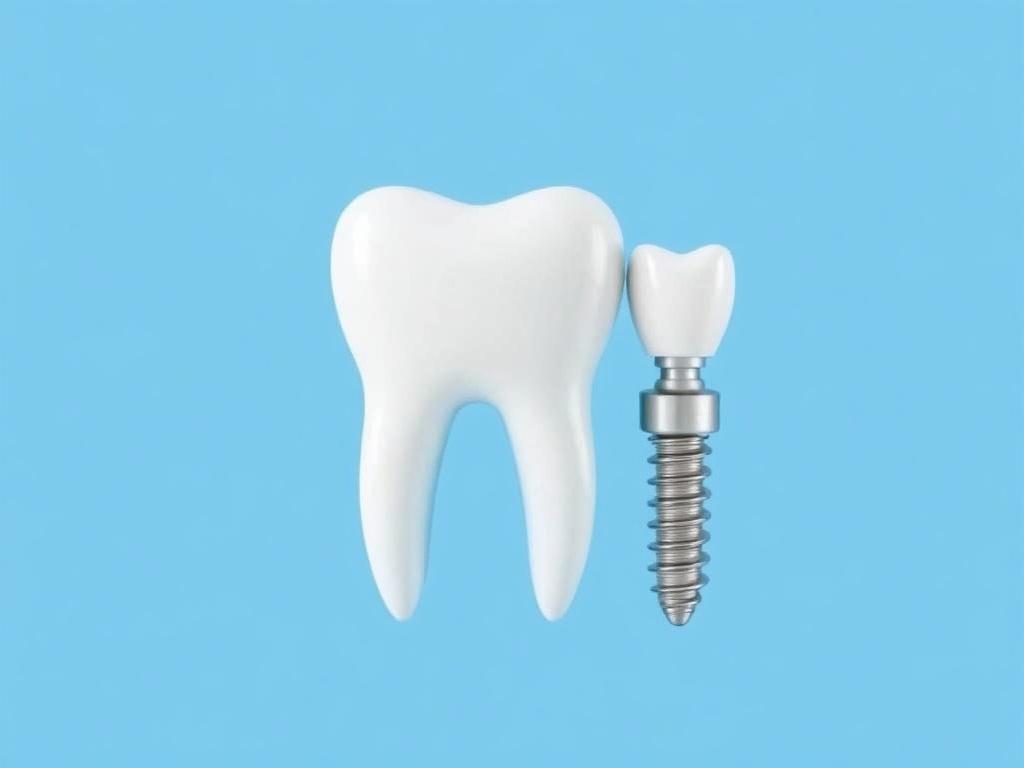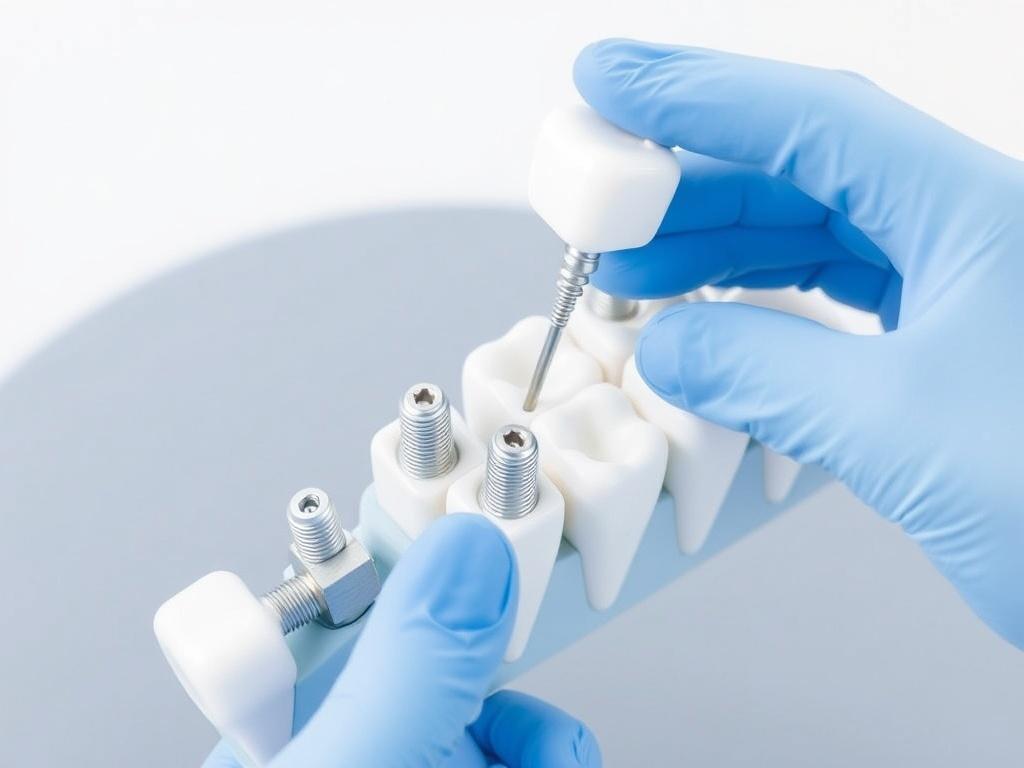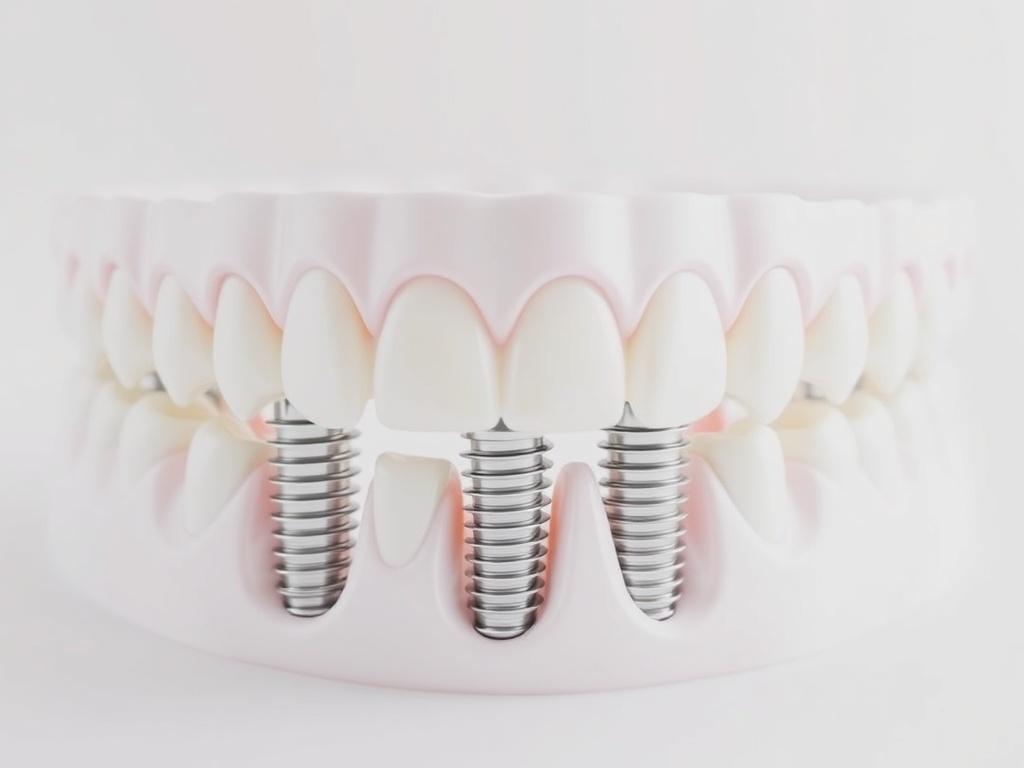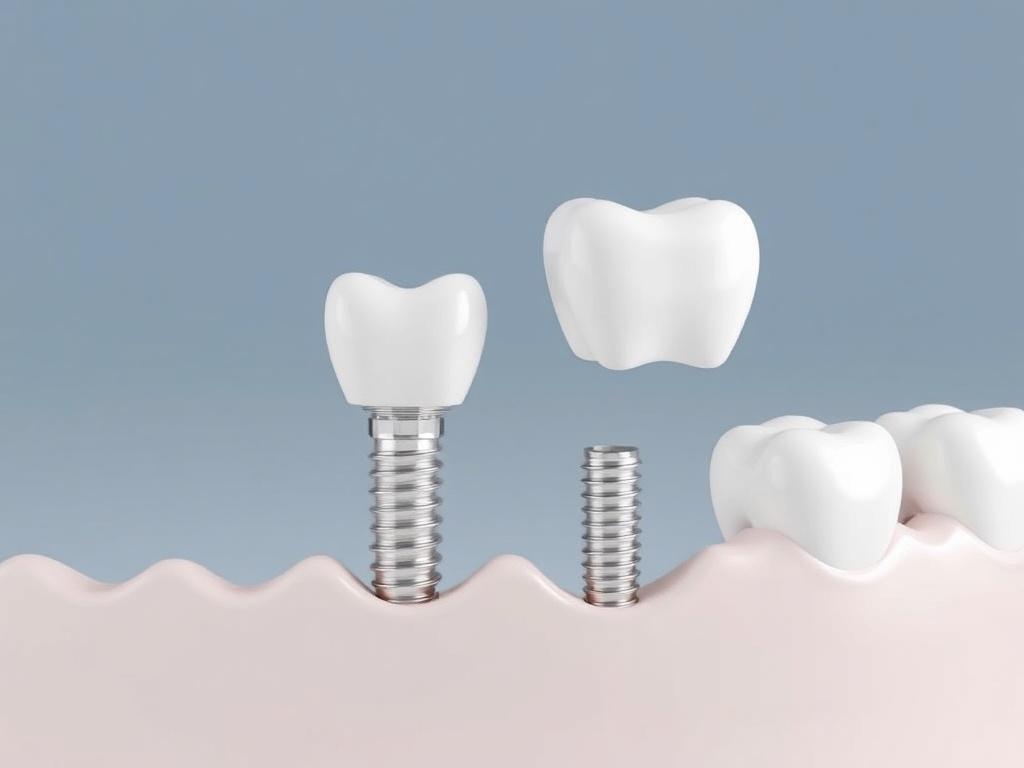Missing teeth can affect much more than just your smile—they can impact your confidence, your ability to chew properly, and even the shape of your face. If you’re looking for a solution that feels natural and lasts for years, dental implants offer a remarkable option for permanent tooth replacement. In this comprehensive guide, we’ll explore what dental implants are, how the procedure works, the benefits, potential risks, and everything you need to know to make an informed decision. By the end, you’ll have a clear understanding of how dental implants can restore your smile and improve your quality of life.
Содержание
- 1 What Are Dental Implants?
- 2 Types of Dental Implants
- 3 The Dental Implant Procedure Explained
- 4 Who Is a Good Candidate for Dental Implants?
- 5 The Benefits of Dental Implants
- 6 Risks and Considerations with Dental Implants
- 7 Caring for Your Dental Implants
- 8 The Cost of Dental Implants
- 9 Frequently Asked Questions About Dental Implants
- 10 Innovations and Future Trends in Dental Implants
- 11 Personal Stories: How Dental Implants Changed Lives
What Are Dental Implants?
Dental implants are titanium posts surgically placed into the jawbone beneath the gum line, acting as artificial tooth roots. They serve as a stable foundation for mounting replacement teeth such as crowns, bridges, or dentures. Unlike dentures, which can slip or move around, dental implants fuse with the bone in a process called osseointegration, making them incredibly strong and durable.
Implants offer a long-term solution for permanent tooth replacement, and because they integrate with your bone, they also help prevent bone loss in the jaw. Many patients find dental implants feel and function just like their natural teeth, allowing them to eat, speak, and smile confidently once again.
Types of Dental Implants
Dental implants come in several types, each suited for different situations. Understanding these options can help you and your dentist decide the best approach for your specific needs.
| Type of Implant | Description | Ideal Use |
|---|---|---|
| Endosteal Implants | Placed directly into the jawbone, usually screw-shaped. | Most common; ideal for patients with healthy jawbone. |
| Subperiosteal Implants | Placed under the gum but above the jawbone; framework supports dentures. | Suitable for patients with insufficient bone height. |
| Zygomatic Implants | Anchored in the cheekbone rather than the jawbone. | Used for severe jawbone loss where traditional implants can’t be placed. |
Single Tooth Implants vs. Multiple Teeth Replacement
For patients missing a single tooth, an individual dental implant topped with a dental crown may be the best choice. This approach replaces just the missing tooth without disturbing neighboring teeth.
For those missing several teeth, implant-supported bridges or implant-retained dentures are commonly recommended. These can restore multiple teeth and provide greater stability than conventional dentures.
The Dental Implant Procedure Explained
Understanding the process from start to finish helps ease any anxiety and prepares you for what lies ahead. The dental implant procedure typically involves several steps carried out over several months:
- Initial Consultation: Your dentist evaluates your oral health, takes imaging scans, and discusses treatment options.
- Treatment Planning: A personalized plan is created, including number of implants, type of restoration, and timelines.
- Implant Placement Surgery: The implant posts are surgically inserted into the jawbone.
- Healing Period (Osseointegration): This usually takes 3–6 months as the implant fuses with the bone.
- Abutment Attachment: Once healing is complete, an abutment is attached, serving as the connection between implant and replacement tooth.
- Restoration Placement: Finally, the permanent crown, bridge, or denture is secured onto the abutment.
While this process may sound lengthy, advancements in dental technology and techniques have shortened timelines in many cases. Some patients even qualify for immediate load implants, where a temporary tooth replacement is attached on the same day as surgery.
Who Is a Good Candidate for Dental Implants?

Dental implants are not suitable for everyone. Ideal candidates typically:
- Have one or more missing teeth
- Maintain good oral hygiene
- Have adequate jawbone density
- Are in good overall health
- Are nonsmokers or willing to quit during healing
However, age is not usually a limiting factor. Even elderly patients can benefit if their jawbone is healthy. In cases where bone loss has occurred, bone grafting procedures may be recommended to restore sufficient bone volume before implants are placed.
The Benefits of Dental Implants

Dental implants offer numerous advantages over other forms of tooth replacement:
- Permanent Solution: Unlike dentures, implants can last 20 years or more with proper care.
- Natural Look and Feel: Designed to mimic natural teeth in appearance and function.
- Preserve Jawbone Health: Implants prevent bone resorption that occurs after tooth loss.
- Improved Oral Health: No need to alter adjacent teeth, as with dental bridges.
- Enhanced Comfort and Stability: No slipping or discomfort common with traditional dentures.
- Better Speech and Eating: Implants allow you to speak clearly and eat without worry.
- Boosted Self-Confidence: Restores your smile and face structure.
Comparing Dental Implants to Other Tooth Replacement Options
It’s worth seeing how dental implants compare to alternatives like dentures and bridges.
| Factor | Dental Implants | Dentures | Dental Bridges |
|---|---|---|---|
| Longevity | 20+ years, often lifelong | 5-7 years | 10-15 years |
| Bone Preservation | Preserves jawbone | Bone loss continues | Limited bone support |
| Comfort | Highly comfortable and stable | Can cause irritation and slipping | Stable but requires alteration of adjacent teeth |
| Maintenance | Regular brushing and professional care | Needs regular removal and cleaning | Regular cleaning, potential replacement |
| Aesthetics | Natural appearance | May look artificial | Good but depends on adjacent teeth |
Risks and Considerations with Dental Implants
Like any surgical procedure, dental implants carry some risks and considerations you should know:
- Infection: Occurs if bacteria enter the surgical site.
- Implant Failure: Rare but possible if osseointegration doesn’t occur fully.
- Nerve Damage: Potential for pain, numbness if nerves near implant site are affected.
- Surgical Complications: Bleeding, swelling, or sinus issues for upper implants.
- Bone Grafting Risks: Additional procedures may increase healing time and complexity.
Choosing an experienced dental surgeon and following pre- and post-operative instructions carefully greatly reduce these risks. Your dentist will evaluate your health and discuss any factors that might affect implant success before proceeding.
Caring for Your Dental Implants
Proper care ensures that your dental implants last as long as possible and continue to look and function great. Here are some tips for maintaining your implants:
- Brush twice daily with a soft-bristled toothbrush.
- Floss daily using implant-specific floss or interdental brushes.
- Visit your dentist regularly for professional cleanings and checkups.
- Avoid hard or sticky foods that can damage restorations.
- Quit smoking, as it impedes healing and implant longevity.
- Use antimicrobial mouth rinses if recommended by your dentist.
With good oral hygiene, your dental implants can provide a healthy, functional smile that lasts decades.
The Cost of Dental Implants

Cost is often a key consideration for many when exploring permanent tooth replacement options. Dental implants may cost more upfront than dentures or bridges, but their longevity and benefits often offset the initial investment.
The price varies widely based on many factors, including:
- Number of implants needed
- Type of dental restoration
- Need for additional procedures like bone grafting
- Geographic location and dentist’s experience
- Materials used in crowns or bridges
| Procedure | Average Cost (USD) |
|---|---|
| Single Tooth Implant | $3,000 – $5,000 |
| Implant-Supported Bridge | $5,000 – $15,000 |
| Implant-Retained Dentures | $7,000 – $30,000 |
Many dental insurance plans cover part of the procedure, and some dentists offer payment plans or financing options. It’s best to discuss your budget and insurance coverage early on with your dental provider.
Frequently Asked Questions About Dental Implants
How long do dental implants last?
With proper care, dental implants can last 20 years or more. Many patients keep them for life.
Is the dental implant procedure painful?
The surgery is typically done under local anesthesia, making it relatively comfortable. Some soreness and swelling may occur during healing.
Can anyone get dental implants?
Most healthy adults can, but conditions like uncontrolled diabetes or insufficient jawbone may require additional treatments or alternatives.
How soon can I eat after getting dental implants?
Soft foods are recommended for a few days post-surgery. Full chewing function is typically restored after the healing period and final restoration placement.
Are dental implants covered by insurance?
Many plans cover part of the cost, but coverage varies. It’s important to check with your provider.
Innovations and Future Trends in Dental Implants
The field of dental implantology continues to evolve rapidly. New advances aim to improve patient outcomes and reduce treatment times, including:
- 3D Imaging and Digital Planning: Enables precise, customized implant placement using computerized simulations.
- Immediate Load Implants: Allowing patients to receive a temporary tooth the same day as implant surgery.
- Improved Implant Materials: New titanium alloys and ceramic implants that enhance biocompatibility.
- Minimally Invasive Techniques: Reducing surgical trauma for quicker healing.
- Regenerative Medicine: Using stem cells and growth factors to enhance bone growth and healing.
These innovations promise to make dental implants an even more accessible and seamless solution for permanent tooth replacement in the future.
Personal Stories: How Dental Implants Changed Lives
Many patients who have undergone dental implant treatment describe dramatic improvements in their daily lives. From feeling embarrassed about missing teeth to regaining confidence in social situations, the impact of implants goes beyond mere aesthetics.
One patient shared, “After losing my front tooth, I was afraid to smile. Getting a dental implant changed everything. It looks so natural, and I feel like myself again.”
Another said, “I used to struggle eating certain foods, but now with implants, I can enjoy meals with my family without worry.” These stories highlight how dental implants can restore not just teeth, but also quality of life.
Conclusion
Dental implants represent a revolutionary approach to permanent tooth replacement, combining functionality, durability, and natural aesthetics. They not only restore the appearance of missing teeth but also support oral health, jawbone integrity, and overall wellbeing. While the journey involves multiple steps and an investment of time and resources, the long-term benefits often outweigh the challenges. Whether you’re missing a single tooth or multiple teeth, dental implants can offer a stable, comfortable, and confident solution. Consulting with a qualified dental professional can help determine if implants are the right choice for you, setting you on a path to a healthier, brighter smile for years to come.







